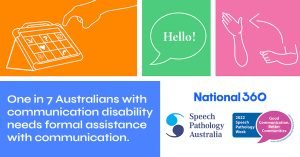The Impact of Community-Based Physiotherapy Services
In today’s fast-paced world, access to quality healthcare services is a top priority. For many Australians, especially those with disabilities or chronic health conditions, the availability of community-based allied health services is a game-changer. In this blog, we will explore the role of community-based allied health services, with a special focus on physiotherapy, to understand why they are different and essential.
What Are Community-Based Allied Health Services?
Imagine a healthcare provider that comes to you, wherever you are, be it your home, school, or workplace. That’s precisely what community-based allied health services offer. These services are provided by multidisciplinary teams, encompassing a range of professionals like Speech Pathologists, Physiotherapists, Occupational Therapists, and Positive Behaviour Support Practitioners, among others. They work with diverse clients, including those under the National Disability Insurance Scheme (NDIS), aged care recipients, and private clients spanning all age groups.
The Unique Nature of Community Physiotherapy
Community-based physiotherapy stands out due to its distinctive characteristics:
- Real-time observation: Unlike traditional settings, community physiotherapists have the benefit of real-time observations seeing the client within their own environment, rather than using extensive diagnostic tools. While we don’t do extensive diagnostic tests, we do still complete standardised assessments.
Whilst they may have limited access to medical records or previous reports, they complete a thorough assessment using real-time observation and standardised outcome measures, making their assessments more immediate, individualised and context driven. - Client’s Environment: Community physiotherapists work in the client’s own environment, whether it’s their home, workplace, or a community location. This setting offers a more holistic view of the client’s life and enables tailored interventions.
- Collaboration: They collaborate closely with multidisciplinary teams (MDTs) and other stakeholders to ensure the best possible outcomes for the client. This often includes family members, support workers, and other therapists.
Community-based physiotherapists work tirelessly to provide care where it’s needed most. They visit clients across the age spectrum, in various settings, and collaborate with other disciplines to provide therapy interventions, assistive technology recommendations, and functional assessments.
The Impact of Community-Based Allied Health Services
The benefits of community-based therapy are substantial and far-reaching:
- Comfort and Familiarity: Clients receive therapy in their familiar environments, which fosters trust and comfort.
- Personalized Outcomes: Therapists can conduct more thorough and relevant assessments, leading to more personalized treatment plans.
- Enhanced Collaboration: Community-based services promote better communication and collaboration with client supports, including families, support workers, and other therapists.
- Convenience: These services are incredibly convenient for clients, offering flexible locations and times.
 Who do National 360 Physiotherapists support?
Who do National 360 Physiotherapists support?
Our teams of community-based Physiotherapists support clients across:
- NDIS
- Aged Care
- GP Management Program (Chronic Disease Management ) and compensable including TAC
The Role of Physiotherapy in Multidisciplinary Teams
In multidisciplinary teams, physiotherapists play a vital role in providing comprehensive and coordinated care. They focus on “person-centred care,” considering physical, functional, and emotional needs. The team sets goals collaboratively with all stakeholders, ensuring a holistic approach to healthcare.
Physiotherapy and Assistive Technology
Did you know Physiotherapists can assist with Assistive Technology? Assistive technology plays a pivotal role in maintaining independence for many Australians. These devices can range from personal care aids to mobility equipment, contributing significantly to the well-being of those with disabilities or age-related challenges.
Case Studies & Examples: Unveiling the Power of Community-Based Physiotherapy Services
- Mental Health Illness: A 53-year-old with schizophrenia and depression experiences increased quality of life and improved ability with daily activities such as shopping and walking by working regularly with a physiotherapist on his functional goal of increased community participation. Exercise proved to be a catalyst for numerous benefits, including improved mood, cognition, and social connection.
- Paediatrics: A 6-year-old with autism spectrum disorder saw tremendous progress with community-based physiotherapy. The physiotherapist’s strengths-based approach, family-centred care, and natural environment interventions led to significant improvements.
- Aged Care: As individuals age, they face challenges like decreased bone density and muscle mass. Community-based physiotherapy services for Aged Care clients provide timely interventions, including falls prevention, mobility assessments, and assistive technology recommendations.
- Assistive Technology: Amy, a 50-year-old with Primary Progressive Multiple Sclerosis, regained her independence with the help of community-based physiotherapy. A thorough assessment, collaboration with other specialists, and appropriate assistive technology led to a life-changing power wheelchair.
Community-based physiotherapy services are making a profound impact on the lives of Australians. They provide personalised care, foster collaboration, and empower clients to lead healthier, more fulfilling lives in their own environments. The future of healthcare is increasingly community-driven, and these services are at the forefront of this shift.
National 360 Physiotherapy Services
Would you like to learn more about the range of physiotherapy clients our community-based physiotherapists assist, and the services they provide? Visit our Physiotherapy services page for more information.
Our mobile physiotherapy services are here to help you, and provide the care you or your client needs. Get in touch with our team to learn more and enquire about services:
1300 340 440

 Who do National 360 Physiotherapists support?
Who do National 360 Physiotherapists support?

